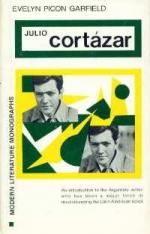|
This section contains 8,608 words (approx. 29 pages at 300 words per page) |

|
SOURCE: King, Sarah E. “Julio Cortázar: The Fantastic Child.” In Critical Essays on Julio Cortázar, edited by Jaime Alazraki, pp. 115-32. New York: G. K. Hall & Co., 1999.
In the following essay, which was originally published in 1992, King regards the examination of childhood as a central theme in Cortázar's short fiction.
“What—is—this?” he said at last.
“This is a child!” Haigha replied eagerly, coming in front of Alice to introduce her …
“We only found it today. It's as large as life, and twice as natural!”
“I always thought they were fabulous monsters!” said the Unicorn.
—Lewis Carroll, Through the Looking Glass
“It is perhaps childhood which comes closest to ‘true life.’”1 This statement, made by André Bretón in his First Manifesto of Surrealism, is echoed by Medrano, the fatally adventuresome protagonist of Julio Cortázar's first novel, The Winners, when he confesses that...
|
This section contains 8,608 words (approx. 29 pages at 300 words per page) |

|


